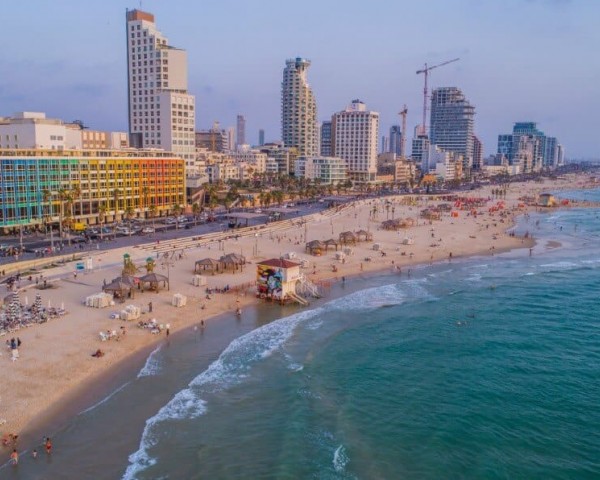On the eve of the Jewish year 5785, Israel’s Ministry of Tourism released an overview of the state of the country’s tourism industry after a year of war and its efforts to cope with tens of thousands of internally displaced people in Israel, many of whom have been housed in hotels.
According to the ministry, Israel has lost about 18.7 billion shekels (approximately 5 billion euros) due to the lack of tourism and 756 million shekels (about 203 million euros) in revenue from domestic tourism.
Since the outbreak of the war, about 853,000 tourists have been registered, mainly from the United States, France, Great Britain, Russia, and the Philippines.
The war has completely wiped out the Israeli tourism industry’s recovery from the COVID-19 crisis. Before the war, there was a significant increase in tourist arrivals, and a new record of tourist arrivals was on the horizon, surpassing the 4.5 million arrivals in 2019.
However, only 3 million tourist arrivals were recorded in 2023, and only 1 million are expected in 2024.
In Israel last year, the majority of visitors were Jews (62%), and 29% were Christians (Catholics and Evangelicals).
Approximately 44% of visitors visited friends and family, 28% cited tourism as their reason for visiting, and 13% came for business purposes. Additionally, 73% of tourists had previously been to Israel.
Following the war, Tourism Minister Haim Katz was granted authority to oversee the evacuation of residents along the conflict line. As a result, 68,712 evacuees, most of whom are from the northern municipalities, have not yet returned home. Of these, 53,113 remain in the city, while 15,599 stay in hotels.
The ministry’s involvement in organizing the evacuation saved the state approximately 5.2 billion shekels ($1.4 billion) due to lower hotel prices and the absence of brokerage commissions on hotel bookings. Katz emphasized that the individual and sensitive approach to the evacuees has helped strengthen the resilience of the home front during the prolonged Israeli campaign.
The evacuation has cost 8.6 billion shekels (2.3 billion euros), including 5.5 billion shekels (1.5 billion euros) paid to hotels. The ministry booked around four million rooms and 13.5 million overnight stays. An additional 3.2 billion shekels (860 million euros) were paid through housing subsidies.
“We have been working to maintain the infrastructure needed for the tourism industry for the day after, and we continue our efforts to promote tourism even during these difficult times,” said Katz.
Despite the tourism crisis, the ministry receives many grant applications for hotel construction and expansion. In 2023, grants were approved for the construction of 2,122 hotel rooms.










